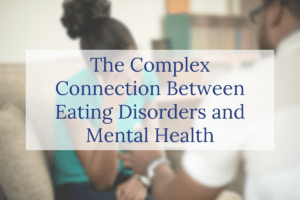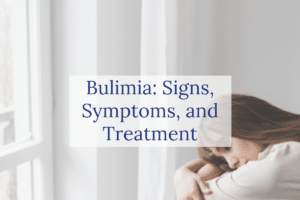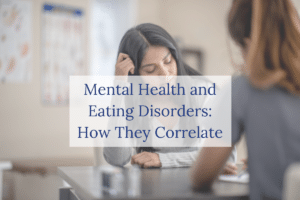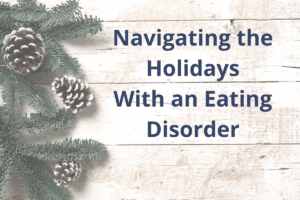Eating Disorder
If you or someone you love is going through an eating disorder, it is essential to focus on the positive. You want to focus on things that will uplift you and help you rebuild your confidence. A very common tool used for those in recovery is the use of affirmations. Affirmations are positive statements that…
With the new year upon us, many people are probably starting to consider their New Year’s resolutions. If this is something you are planning to do for the new year, you may want to put most of your focus on personal growth resolutions. Personal growth resolutions are the most common types of goals people have…
Eating disorders are a group of serious, often life-threatening conditions characterized by disturbed eating behaviors, preoccupation with body weight and shape, and an overwhelming desire to control one’s food intake. While eating disorders manifest primarily as physical issues, their roots are deeply intertwined with mental health. This blog will explore the complex connection between eating…
Human beings are wired for connection, seeking bonds and relationships that fulfill our emotional needs. However, some connections can become toxic and detrimental to our well-being. In this blog, we will delve into the concept of trauma bonds, exploring what they are, how they form, their toxic nature, and most importantly, how to detach from…
Avoidant Restrictive Food Intake Disorder, also known as ARFID, in one of less commonly known eating disorders. While it has a lower prevalence in the general population as Anorexia Nervosa or Bulimia Nervosa, it has a greater prevalence within specific communities and children. ARFID is more than just picky eating (though the beginnings of ARFID…
Eating disorders thrive in secrecy. Like most mental health disorders, they grow in the dark and in the ways we hide our pain from others. Eating disorders are also some of the most deadly disorders due to the health consequences that come from inadequate nutrition. Couple that with the fact that those in recovery cannot…
Eating disorders are about so much more than food. Underlying symptomatology such as low self-esteem, past trauma, substance use or mental health symptoms play a critical role in the formation of an eating disorder and how they manifest. These can present as co-occurring disorders, or simply motivators towards eating disorder behaviors. What’s a co-occurring disorder?…
The holidays claim to be the most wonderful time of the year, but for those with an eating disorder these seasons present new and difficult challenges for staying on track with recovery. Why is that? First and foremost, the holidays are an emotionally taxing time for those who don’t have an eating disorder. Family drama,…
Establishing and maintaining healthy routines helps bring a certain sense of stability and consistency into your life. This is especially important during your recovery. Many treatment programs initiate a structured routine so that way it’s harder to veer off course and fall back into old habits. In fact, statistics show that the more structured someone’s…
Recovery is a journey and will take learning some new behaviors to make it successful. Setting boundaries is key to putting yourself and your mental health first. This is especially important during your recovery. Setting boundaries often looks like saying no to anything that might hinder the progress you’ve made or hope to make. Saying…











